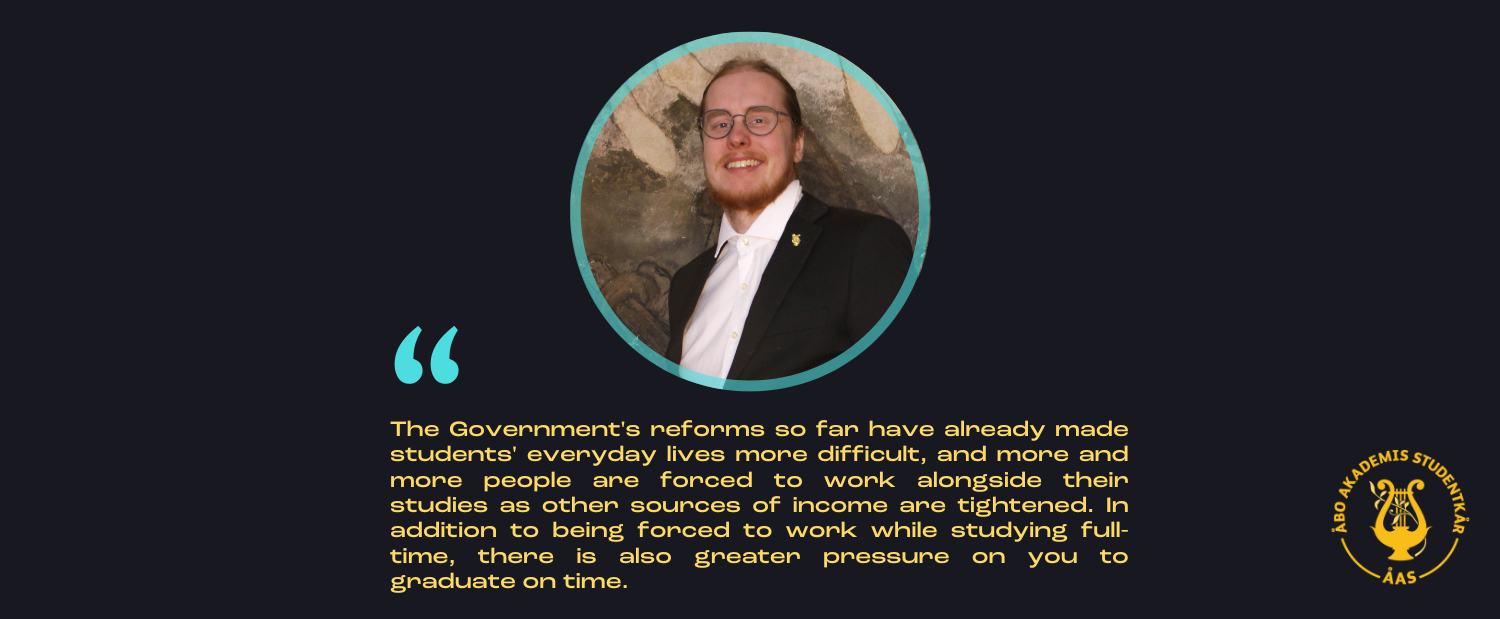Higher performance requirements for students when university funding is updated.
Blog — 22.2.2024

The Orpo government is at it again. This time, it is the universities’ funding model that is reviewed and possibly changed.
Universities in Finland have autonomy over their operations and finances, but money is always something that universities need. Some of the funding comes from external factors, such as donations or corporate cooperation, but most of the funding by far, comes from the state. Funding from the state is also the easiest for universities to predict and rely on in the annual budget. Small changes to the funding model can therefore have a major impact, and tens of millions of euros are paid to the country’s universities. Funding is therefore the strongest policy instrument the state can use to influence the activities of universities.
The Ministry of Education and Culture has asked for comments on its proposal to change the way universities receive funding from the state, and the Student Union has issued a statement. I would like to highlight two of the most important changes proposed, as well as our comments.
More money for a degree completed within the target time.
Currently, if you as a student complete your degree within the target time, the university will receive €17,096, which is 1.5 times more than if your degree is completed 12 months after the target time deadline. The Ministry for Education and Culture proposes that the coefficient for a degree completed within the set time limit would be raised from 1.5 to 1.8.
The Student Union opposes an increase in the coefficient for a degree completed within the target time. The Government’s reforms so far have already made students’ everyday lives more difficult, and more and more people are forced to work alongside their studies as other sources of income are tightened. In addition to being forced to work while studying full-time, there is also greater pressure on you to graduate on time. Not all students are able to complete their studies on time due to family situations, learning difficulties or disabilities, for example.
Raising the coefficient would also put more pressure on universities to get students to complete their studies on time. This, in turn, tightens the already limited resources universities have to support their students. Instead of the state providing more money for on-time graduations, could it be invested in supporting students?
More money for admitted first-time applicants
At present, the university does not receive money for first-time applicants who are admitted. The proposal here is to introduce a proportion of money that would go to universities based on how many first-time applicants are admitted. ÅAS strongly opposes this proposal as well.
This would mean that universities would have to increase their quotas for first-time applicants, and if you at some point in your life have accepted a study place, it would be more difficult to continue your education or to change your studies to another subject. Quite simply, it means that universities are penalized financially by admitting students who have already at some point accepted a study place.
Another change related to this, is the proposal to lower the coefficient of a second degree from 0.7 to 0.5. This means that if you have another bachelor’s degree, universities would receive more than € 10,000 less compared to a first-time applicant who graduates on time. This change would also penalize universities and lead to poor incentives for admissions.
Especially now that universities are suffering from major financial problems and the state is proposing changes to the funding model, it is important to look at and debate what effects the changes may lead to. The picture we see from the changes is that the students’ everyday lives are under additional pressure to finish on time, and that the university management is forced to think about how this puzzle can even be put together.
Niko Sandberg
Member of the Executive Board, Higher Education Policy
The Student Union of Åbo Akademi University